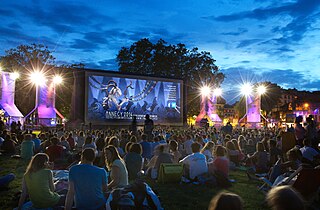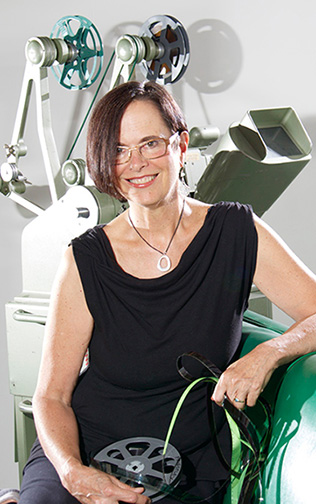
Astro Boy, known in Japan by its original name Mighty Atom, is a Japanese manga series written and illustrated by Osamu Tezuka. It was serialized in Kobunsha's Shōnen from 1952 to 1968. The 112 chapters were collected into 23 tankōbon volumes by Akita Shoten. Dark Horse Comics published an English translation in 2002. The story follows Astro Boy, an android young boy with human emotions who is created by Umataro Tenma after the recent death of his son Tobio. Eventually, Astro is sold to a robot circus run by Hamegg, but is saved from his servitude by Professor Ochanomizu. Astro becomes a surrogate son to Ochanomizu who creates a robotic family for Astro and helps him to live a normal life like an average human boy, while accompanying him on adventures.

Osamu Tezuka was a Japanese manga artist, cartoonist, and animator. Born in Osaka Prefecture, his prolific output, pioneering techniques, and innovative redefinitions of genres earned him such titles as "the Father of Manga", "the Godfather of Manga" and "the God of Manga". Additionally, he is often considered the Japanese equivalent to Walt Disney, who served as a major inspiration during Tezuka's formative years. Though this phrase praises the quality of his early manga works for children and animations, it also blurs the significant influence of his later, more literary, gekiga works.

Priit Pärn is an Estonian cartoonist and animation director whose films have enjoyed success among critics as well as the public at various film festivals.
Rintaro is the pseudonym of Shigeyuki Hayashi, a well-known director of anime. He works frequently with the animation studio Madhouse, though he is a freelance director not employed directly by any one studio. He began working in the animation industry—at age 17—as an in-between animator on the 1958 film Hakujaden. His works have won and been nominated for multiple awards, including a nomination for Best Film (Metropolis) at the 2001 Festival de Cine de Sitges.
ASIFA-Hollywood, an American non-profit organization in Los Angeles, California, is a branch member of the International Animated Film Association. Its purpose is to promote the art of film animation in a variety of ways, including its own archive and an annual awards presentation, the Annie Awards. It is also known as the International Animated Film Society.

The Ottawa International Animation Festival is an annual animated film and media festival that takes place in Ottawa, Ontario, Canada. The OIAF was founded in 1975, with the first festival held from August 10 to 15 in 1976. Initially organized by the Canadian Film Institute on a biennial basis and with the co-operation of the International Animated Film Association, the Festival organization now remains in the hands of the CFI. It moved from a biennial to an annual festival in 2005. Today the festival is recognized as the largest and oldest animation festival in North America, and regularly attracts upwards of 25,000 attendees when it is held each September.

The Annecy International Animation Film Festival was created in 1960 and takes place at the beginning of June in the town of Annecy, France. Initially occurring every two years, the festival became an annual event in 1998. It is one of the four international animated film festivals sponsored by the International Animated Film Association.
Makoto Tezuka, officially romanized as Macoto Tezka, is a Japanese film and anime director, born in Tokyo. He fashions himself as a visualist and is involved in the creation of moving images beyond film and animation. He partially owns Tezuka Productions and helped in releasing the posthumous works of his father, Osamu Tezuka.
The International Animated Film Association is an international non-profit organization founded in 1960 in Annecy, France, well-known animation artists, including Canadian animator Norman McLaren. There are now more than 30 chapters of the Association located in many countries of the world.

Joanna Priestley is an American contemporary film director, producer, animator and teacher. Her films are in the collections of the Academy Film Archive in Los Angeles and the Museum of Modern Art in New York. Priestley has had retrospectives at the British Film Institute, Museum of Modern Art and Hiroshima International Animation Festival in Japan. Bill Plympton calls her the "Queen of independent animation". Priestley lives and works in Portland, Oregon.
Mainichi Kaasan is a Japanese comedy manga series written and illustrated by Rieko Saibara, based on her experiences as a housewife and mother. It was serialized on a weekly basis in the Mainichi Shimbun newspaper's morning edition from October 2002 to 26 June 2017. The manga was later collected into 14 tankōbon volumes. It won several awards, including the Excellence Award at the 8th Japan Media Arts Festival in 2004, the Short Story Award at the Tezuka Osamu Cultural Prizes in 2005, and the President of the House of Councilors Award at the 40th Japan Cartoonist Awards in 2011. Mainichi Kaasan was adapted into an anime television series directed by Mitsuru Hongo that aired on TV Tokyo from 1 April 2009 to 25 March 2012. Spanning 142 episodes, the anime was licensed in English under the title Kaasan: Mom's Life on Crunchyroll's video streaming website. Mainichi Kaasan was also adapted into a live-action film directed by Shōtarō Kobayashi, released in theaters in Japan on 5 February 2011. The film starred the real-life divorced couple Kyōko Koizumi and Masatoshi Nagase as the titular kaasan and her husband. It won the Best Film for Asian New Talent Award at the 14th Shanghai International Film Festival in 2011. Additionally, Koizumi won the Best Actress Award at the 66th Mainichi Film Awards in 2012 and Nagase won the Best Actor Award at the 20th Japanese Movie Critics Awards.

Noureddin Zarrinkelk, also spelled Zarrin-Kelk, also known as Noori or Nouri, is an Iranian animator, concept artist, editor, graphic designer, illustrator, layout artist, photographer, script writer, educator, and sculptor.
Helen McCarthy is the British author of such anime reference books as 500 Manga Heroes and Villains, Anime!, The Anime Movie Guide and Hayao Miyazaki: Master of Japanese Animation. She is the co-author of The Erotic Anime Movie Guide and the exhaustive The Anime Encyclopedia with Jonathan Clements. She also designs needlework and textile art.
Tezuka Productions Co., Ltd. is a Japanese animation studio founded by Osamu Tezuka in 1968. It is known for animating notable works such as Marvelous Melmo, the 1980 and 2003 Astro Boy series, and Black Jack. It is also the holder of the intellectual property of Tezuka's works; his son, Makoto Tezuka, currently aims to use the company to extend Tezuka's manga series with new issues and publish posthumous works such as Legend of the Forest.

Village of Idiots is a short animated comedy based on the classic humorous Jewish folk tales of Chełm, directed and animated by Eugene Fedorenko and Rose Newlove, written by John Lazarus, and produced by the National Film Board of Canada (NFB). Fedorenko is the Academy Award-winning animator of the 1979 NFB short Every Child. In 1999, it was one of four films in the 1st Annual Animation Show of Shows.

World Festival of Animated Film Zagreb, also known as Animafest Zagreb, is a film festival entirely dedicated to animated film held annually in Zagreb, Croatia. Initiated by the International Animated Film Association (ASIFA), the event was established in 1972. Animafest is the second oldest animation festival in the World, after the Annecy International Animated Film Festival.
The Ōfuji Noburō Award is an animation award given at the Mainichi Film Awards. It is named after Japanese animator Noburō Ōfuji.

Alê Abreu is a Brazilian film director and screenwriter. Sírius, his first short film, debuted at the 1993 Anima Mundi as the only Brazilian animation that year. It won the Best Film Award at the Festival de Cine para Niños y Jovenes and was also screened at the Mostra Internacional de Cinema São Paulo and at the section Animation for Children of the Hiroshima International Animation Festival. His second short film, Espantalho, released in 1998, won the 3rd Best Brazilian Animation at the Anima Mundi, the Best Art Direction Award at the Brazilian Film Festival of Miami, and was nominated for Best Animated Feature at the 1st Grande Prêmio Cinema Brasil. His first feature film, Garoto Cósmico, debuted at the 2007 Anima Mundi. In 2013, at the Ottawa International Animation Festival, he released his second film, Boy and the World. This film became an international success, was nominated at the 88th Academy Awards for Best Animated Feature, and won several prizes, including the Best Feature Film at the Annecy International Animated Film Festival and the Best Animated Feature-Independent at the Annie Awards.
Kōsei Ono is a Japanese film critic, cartoon critic, comic translator and overseas comic / animation researcher. Ono is the leading authority on the publication, research and introduction of overseas comics in Japan. From 1963 to 1974 he worked for NHK. He is a visiting professor in the Asia Department of Kokushikan University, a board member of the Japan Society for Studies in Manga and Comic Art, and a member of ASIFA JAPAN, the Japan Cartoonists Association, and the Japan Science Fiction Writer's Club.
The 49th ceremony of the Annie Awards, honoring excellence in the field of animation for the year of 2021, was held on March 12, 2022, at the University of California, Los Angeles's Royce Hall in Los Angeles, California as a virtual event. The nominations were announced on December 21, 2021.










